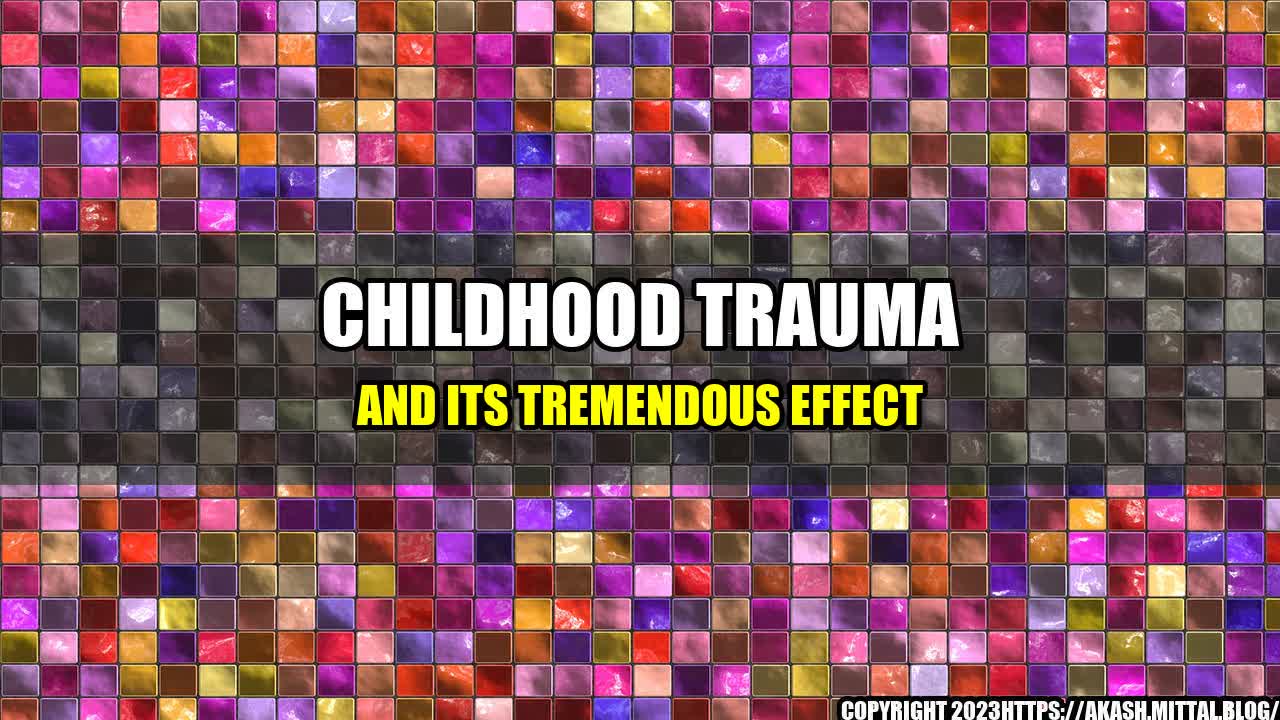David was a bright and outgoing child until he witnessed his father's death in a car accident. After the trauma, David became withdrawn and anxious, always on edge, and constantly worried about the safety of his loved ones. He struggled at school and relationships, and his physical health began to suffer as well.
David's story is just one example of how traumatic childhood experiences can have a tremendous impact on a person's life.
Childhood trauma refers to experiences that are emotionally painful or distressful, such as abuse, neglect, violence, or abandonment. The psychological and physical effects of childhood trauma can persist into adulthood, affecting a person's mental and physical health, relationships, and even their lifespan. In fact, recent studies have shown that childhood trauma can be a significant risk factor for developing chronic conditions and diseases, such as depression, anxiety, PTSD, heart disease, and cancer.
The Science Behind Childhood Trauma
Adverse childhood experiences (ACEs) have been extensively studied in recent years, and the results are alarming. The original ACE study, conducted by the Centers for Disease Control and Prevention (CDC) and Kaiser Permanente, surveyed over 17,000 adults and found a strong association between ACEs and health problems. The study identified ten major types of ACEs:
- Physical abuse
- Sexual abuse
- Emotional abuse
- Physical neglect
- Emotional neglect
- Mental illness in a household member
- Substance abuse in a household member
- Domestic violence
- Criminal behavior in a household member
- Parental separation or divorce
The study found that the higher the number of ACEs a person had experienced, the higher their risk of chronic diseases, mental illness, substance abuse, and early death. For example, people with four or more ACEs were:
- 4.5 times more likely to develop depression
- 12 times more likely to attempt suicide
- 7 times more likely to become alcoholics
- 10 times more likely to use intravenous drugs
- 2.5 times more likely to have ischemic heart disease
Other studies have confirmed the link between childhood trauma and poor health outcomes. A recent study published in JAMA Pediatrics found that children who experienced abuse or neglect were more likely to develop hypertension in adulthood. Another study published in the Journal of Adolescent Health found that teenagers who reported childhood emotional abuse were more likely to have symptoms of depression and anxiety years later.
How to Prevent Childhood Trauma
Preventing childhood trauma is not always possible, but there are strategies that can help reduce its occurrence and impact:
- Recognize the signs of child abuse and neglect, and report suspected cases to authorities
- Offer support and resources to parents, particularly those who may be struggling with poverty, addiction, or mental illness
- Invest in programs that promote early childhood development, such as high-quality preschool education
- Provide access to mental health services for children and families who have experienced trauma
- Teach children and parents coping strategies to manage stress and anxiety
The Importance of Addressing Childhood Trauma
The effects of childhood trauma are not limited to the individual – they can also have a significant impact on society as a whole. Traumatized children are more likely to struggle academically, have behavioral problems, and engage in substance abuse and criminal activity. They are also less likely to be productive members of society and more likely to require costly medical and social services.
Addressing childhood trauma is not only a matter of compassion and justice – it is also a matter of public health and economic stability. By investing in prevention and early intervention, we can break the cycle of trauma and build a healthier, more resilient society.

Curated by Team Akash.Mittal.Blog
Share on Twitter Share on LinkedIn